By the third episode of psychological action-drama Psycho-Pass, the show’s really hit its stride. Episode 3 takes the material presented in the show’s set-up and begins to shape its vision: a nuanced take on rigid techno-bureaucracy grappling with contradictory human nature.
But like any anime with good gender politics, first, some equal opportunity fan service: An entire sequence of Kogami working out shirtless, getting sweaty, pouring some more potable water on himself, lighting a cigarette, and then perusing his mortal enemy vision board:
It seems the show never misses a beat to underline that while the plot follows Akane’s development and uses her voice as the narrator, Kogami is the one whose story kicks off the show itself, and it’s his history that’ll end up laying down the story’s end game. This knowledge all serves to add another layer of meaning to the show’s opening, which features sequences of Kogami fighting himself. (My writing all of this upfront is also a measure of foreshadowing.)
To the case of the week: the death of a drone factory worker, which would’ve been chalked up as a blameless malfunction if it weren’t for the fact that it’s the third grisly dismemberment in a year. Inspector Ginoza and Akane head over, and in the as they set up yet another high stakes operation (can the rookie ever get a break; just kidding, of course she can’t), Akane muses on the development she’s had with the Enforcers, laying down her hopeful dreams of a happy and healthy Inspector/Enforcer family unit:
Ginoza, by virtue of being the character with angular hair and thin glasses, calls her optimism out for what it is: “Are you talking about working with the Enforcers as your ‘friends and colleagues’? Or do you mean working with them as their ‘handler,’ as an Inspector should.” He cautions her against treating them as her equals, let alone her friends, dropping a line about how only fools have to learn from experience (mirroring what Masaoka told her about the learned world/real world split) and how the wise take history at its word.
Onto the factory itself, which is totally offline — disconnected not just from the Internet (even Ethernet!) but also from the far reaches of the Sibyl System for fear of hacking, which must surely be one of the biggest fears in this digital world. (What subtle parallels.) Upon receiving the news that the workers, who are tasked with the repetitive work of debugging dangerous automaton weapons, live without any outside connection and on site, the Inspectors and Enforcers are right to immediately question the methodology behind the factory’s practice.
But when confronted with actual solutions like having the workers leave the factory ground and face immediate Sibyl judgment via the Dominators, the factory’s chief rejects them and Ginoza’s help in determining the true motives behind the latest death. As Kagari and Masaoka helpfully explain to sweet baby Akane, the factory is under direct control of the Ministry of Economy, and as such, the time it’d take to shut the factory down and conduct the Dominator checks affects the operation’s bottom line. It’s easier to overlook worker deaths and chalk them up as inevitable industry accidents. Ugh, capitalism.
More importantly, Kagari and Masaoka explain that in their guts, as in all Enforcers’ guts, they know this case is a murder. Much like his earlier explanation of the concept to Akane, Masaoka underscores that the reason he and the others are so good at their role is because they’re able to tell when something’s off of the ordinary, which most people accept as granted. Call it spidey sense, call it whatever: they have an insight into human psychology that most people, by virtue of the Sibyl system and the automaton functionality of the world, have lost.
For the factory chief, it’s enough that all of his workers pass cursory Psycho-Pass exams, which don’t get deep into Crime Coefficient data and underlying fluctuations (aka Psych 101). As for what those fluctuations might be? What might entertain a group of men living and working in total isolation?
The actual answer: ganging up and beating up on one of their co-workers, one unfortunate Yuji Kanehara. However, nobody except the Enforcers and Akane realize that perhaps regularly beating someone up might possibly affect their feelings toward their peers, and perhaps drive that person to lash out and take revenge through means of accessible homicide. The factory chief even has the gall to suggest that Kanehara’s placement in the factory might’ve been the work of Sibyl, in order to have someone to play the general scapegoat and whipping boy within that environment.
Kogami, being permanently disgruntled, takes immediate issue with that statement and suggests that the chief is the perfect recommendation from Sibyl as well, since he’s an unfeeling bureaucrat who looks down on other human beings. After unleashing that zinger, he helps Kanehara up from his latest beating, setting off butterflies in Akane’s heart.
In an Inspector/Enforcer regroup, Ginoza stresses that the team needs real evidence to go after for a homicide investigation, and that the case needs to be built on empirical evidence. Masaoka points to the Psycho-Pass scan evidence, which shows Kanehara switching shifts because of mental cloudiness and also shows bumps in clarity after “accidents” (which plays off the notion that he gains temporary relief from bullying by, well, killing his bullies), as proof that the bullied one is taking his sweet murderous revenge. However, Ginoza lashes back against the assertion that Masaoka and the Enforcers know what’s up, prompting Akane to take him aside, wherein she expresses her support for the Enforcers’ ideas and innocently assk the question: “Did something happen between you and Masaoka?” — which in turn causes him to fix his icy, angular gaze upon her. He straight-up calls her a fool, but also authorizes her to carry out the Enforcers’ methodology.
As Akane and the Enforcers prepare for their night hunt, Akane brings up the bad blood between Ginoza and Masaoka, and though the Enforcers confirm that it’s there, they’re too busy to elaborate. The plan: to lay some sort of trap, instigated by Kogami, to get Kanehara into an area with temporary communications/Sibyl access. Akane goes to babysit Kogami, and thus kicks off the most intense action sequence of the show so far.
Though Kogami helped Kanehara up in the latter’s latest beating, he plays tough in order to push the man to his brink. By literally dragging him out of the bathroom stall where Kanehara eats his meals (), Kogami teases out how Kanehara really reacts to resentment and violence, outside of the public eye of his peers. His method, which is presumably the Enforcer way, is emotionally and physically violent — and while he’s playing a role, he’s not not relishing it.
(Akane is, predictably, surprised at what happens when she lets a group of latent criminals figure out how to go after one of their own.)
Alas, despite Akane’s better wishes, Kanehara is indeed the one who’s been murdering his co-workers, and he activates two drones to go after Kogami and Akane. As this happens, this exchange goes down:
Akane: “Why would you gamble with our lives just to prove a point to Ginoza!”
Kogami: “It’s not about proving a point, it’s about getting justice for the dead. Sometimes when you want to uncover the truth, you have to be prepared to risk your life.”
Talk about competing worldviews. Akane thinks this is as simple as lashing back against a “master” placeholder. For Kogami, the stakes are much higher — and he looks utterly ecstatic while on the run from danger.
As Kunizaka and Kagari lay out the communications cable that’ll allow the Dominators to work inside the factory, Kogami and Akane dodge Kanehara’s attacks. Finally, the genuinely thrilling sequence ends with Kogami getting a Dominator, Taser-ing Kanehara, and revealing the Destroy Decomposer mode to destroy the drones themselves.
As the Enforcers (and, in an unsettling note, the factory chief) survey the aftermath and remark on what was essentially an under-the-table job, Akane has this to say about Kogami:
“He said he didn’t want to be some kind of hunting dog, he wanted to be a detective. But the look I saw in his eyes that night was more like that of a wolf who had its prey by the neck and couldn’t wait to taste blood.”
This is the same Kogami who touched her heart with his assertion that he made her remember why he’s doing what he’s doing; this is the same Kogami who swore that it wasn’t the rush of violence that got him going. And in the end, it’s this same Kogami who not only puts his and Akane’s lives on the line for a case, but also ruthlessly executes his plan and shows a knack for adjusting his temperament and character for whatever suits him best.
Tweet your thoughts on Season 1, Episode 3 of Psycho-Pass to me here. This should go without saying, but NO SPOILERS PLEASE!
Lilian Min is a contributing editor at HelloGiggles and has written for The Atlantic, Nylon Magazine, BuzzFeed, and others. Read her other work here and tweet her here.
—Please make note of The Mary Sue’s general comment policy.—
Do you follow The Mary Sue on Twitter, Facebook, Tumblr, Pinterest, & Google +?




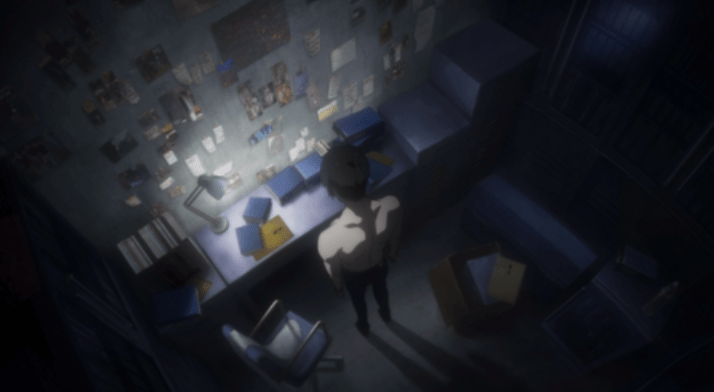
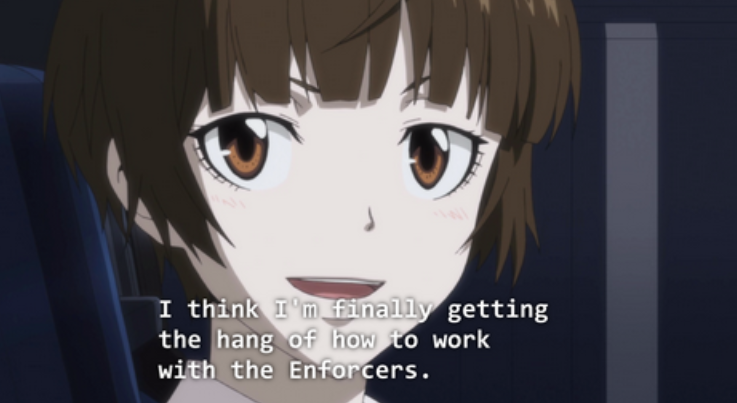
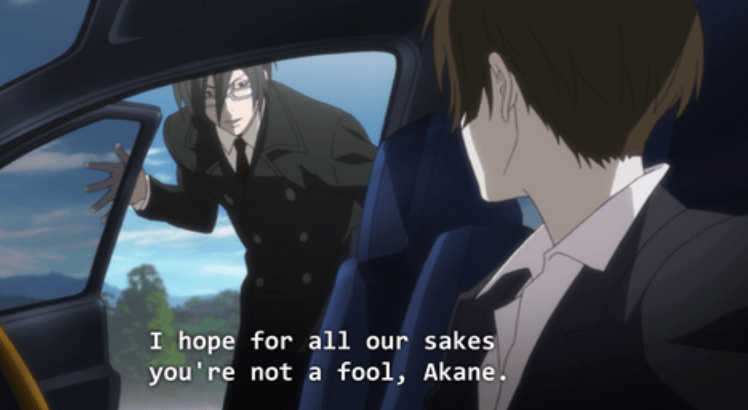
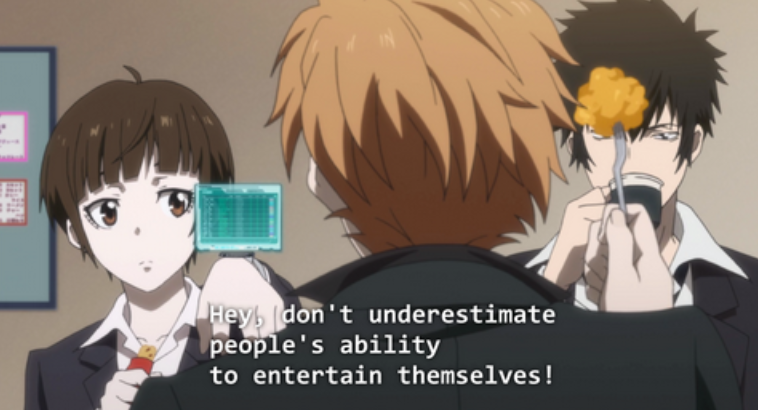
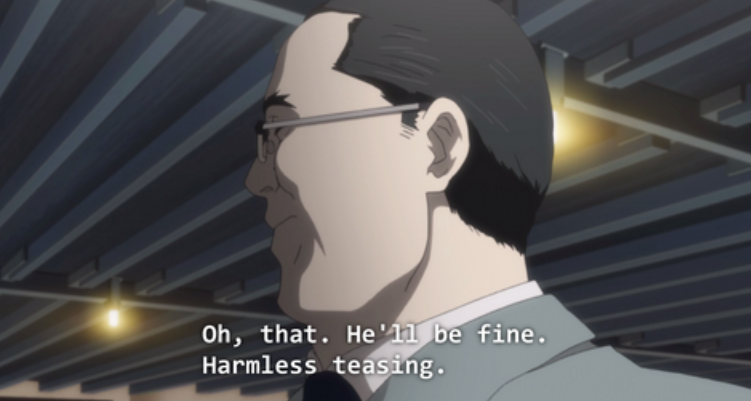

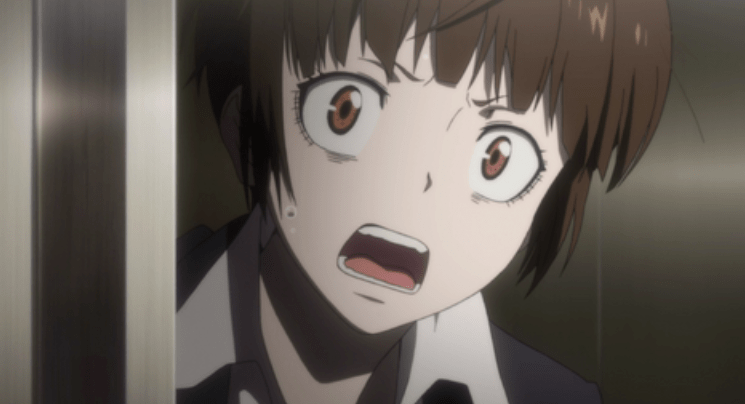
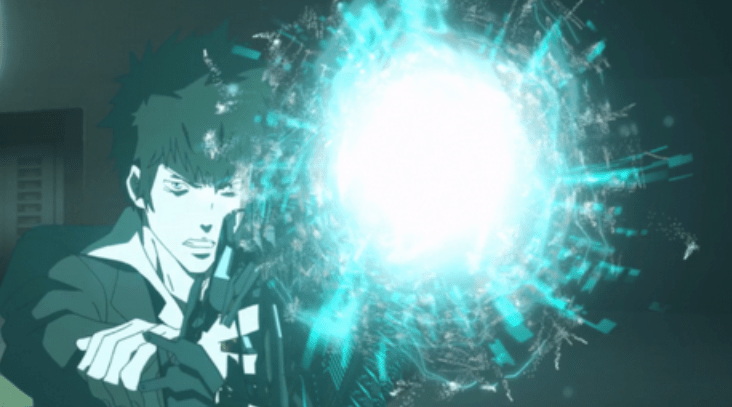





Published: Sep 6, 2015 08:00 pm